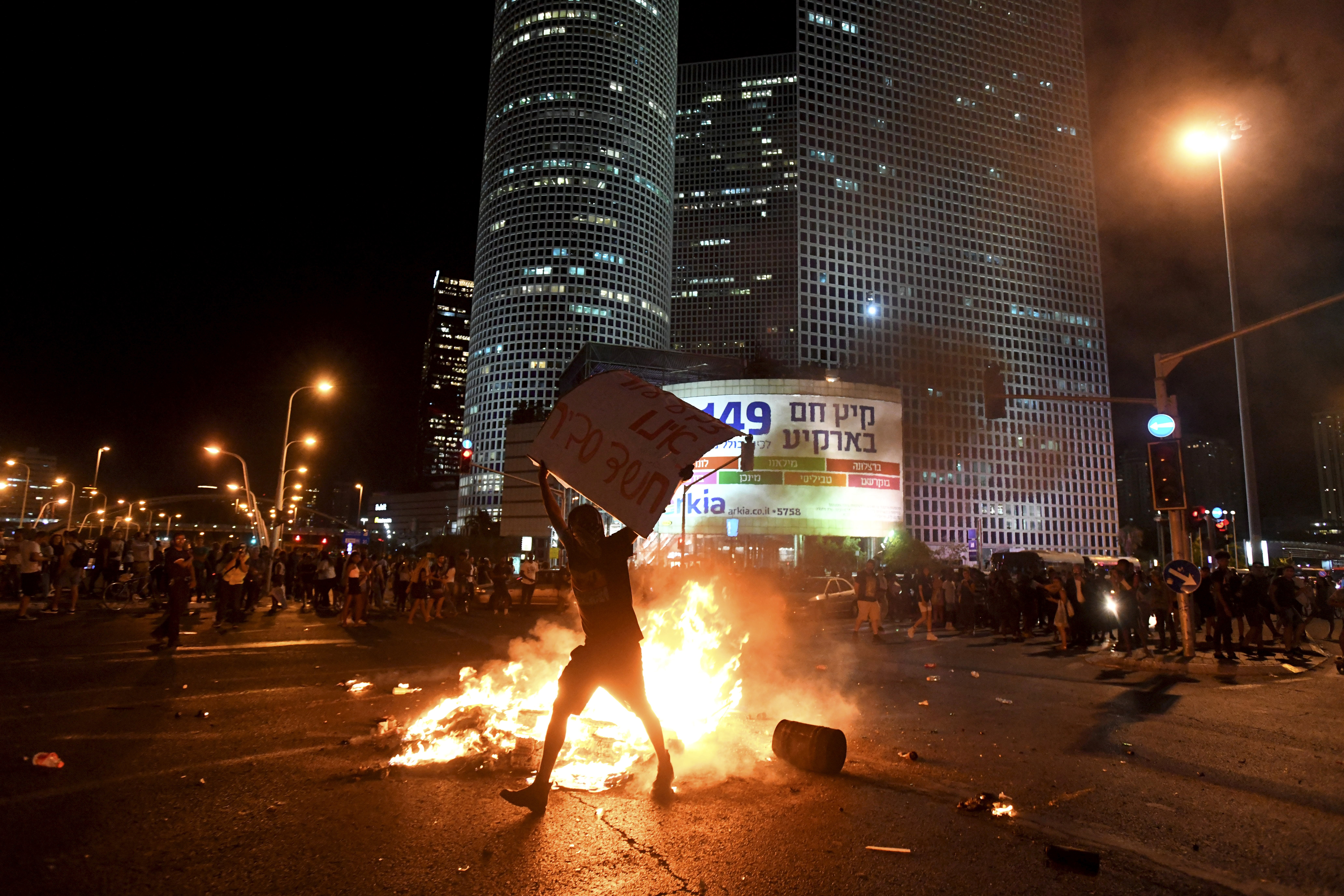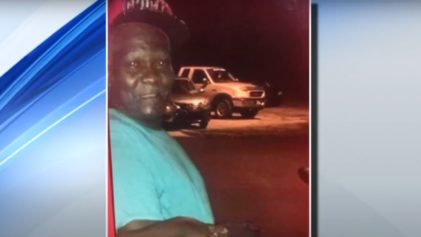The fatal shooting of an 18-year-old Ethiopian man by Israeli police Sunday has triggered violent protests, as thousands from the country’s Ethiopian–Israeli community and others took to the streets to demand justice in the teen’s death.
According to The Jerusalem Post, Israeli police reported Tuesday that at least 47 officers were wounded and 60 people arrested during protests over the death of Solomon Tekah. By Wednesday, authorities said some 111 officers had been injured in violent clashes across the country, with 136 demonstrators taken into custody. It’s unclear how many protesters were injured.

Protesters of the Ethiopian community of Israel burn tires and properties to establish a barricade and close divided roads during a protest against the killing of Solomon Tekah, a young man of Ethiopian origin, who was killed by an off-duty police officer, near Azrieli Tower in Tel Aviv, Israel, on July 2, 2019. (Photo: Yossi Zeliger/Anadolu Agency/Getty Images)
The Jewish state was consumed with unrest after Tekah, 18, was shot and killed by an off-duty officer on Sunday. The bullet he shot reportedly ricocheted of the ground and fatally wounded the teen.
“This man is a murderer,” the young man’s father, Varkah Tekah, said of the officer who shot his son. “How did he kill my son in cold blood? He was a child.”
“We didn’t come to Israel for our children to be murdered,” he added. “We came [to Israel] because of Zionism. This is also our country; we are soldiers and police officers and we’ve never killed anyone in cold blood. We demand that justice and the law is done.”
Protesters are accused of blocking several major highways during the weekend unrest, causing major traffic jams and effectively putting the nation at a standstill.
Initially, police said they refrained from dispersing the massive crowds for fear of exacerbating already heightened tensions, but were forced to step in after the demonstrations turned violent. Angry protesters hurled rocks, Molotov cocktails and burning tires into the streets, and there were even reports of attacks against law enforcement personnel, according to the newspaper.
In cities like Kiryat Ata, demonstrators threw stones and set a car on fire. One video posted to social media showed several masked protesters in Tel Aviv flip a wrecked car over into a pile of burning rubble in the middle of the street. “End the killing! End the racism!” some chanted.
The protests also clogged streets in Netanya, Ashkelon, Jerusalem and other cities Tuesday evening, and forced the police to shut down at least 12 major junctions, according to Vox. Prime Minister Benjamin Netanyahu acknowledged there were “problems that still need to be resolved” in the wake of the fatal shooting, but called on protesters to follow the law and refrain from blocking the roads.
An attorney for the unnamed officer claimed the cop feared for his life after coming under attack by a group of teens hurling rocks at him, the Jerusalem Post reported. He called for backup just minutes before opening fire on the youths.
The officer now faces a possible charge of negligent homicide, but it’s of little consolation to the aggrieved Ethiopian community who said Tekah’s death is just the latest example of racist, state-sanctioned violence against their people.
“This type of racism didn’t just start yesterday, it’s been alive since before our ancestors got here,” Naftali Aklum, an Ethiopian-Israeli activist who hosts educational workshops on the history of his community, told the newspaper in a recent interview. He noted that Ethiopian Jews had “walked over 300 miles from Ethiopia to Sudan, stayed in refugee camps, lost 4,000 Ethiopians on the way and when they finally made it to Israel, this is how they treated us.”
Despite their efforts to assimilate, Aklum said Israelis have yet to accept Ethiopians because of their skin color. He pointed to previous comments by former police chief Roni Alsheich, who, in 2016, suggested it was “normal” for officers to be suspicious of Ethiopians.
“When your chief is normalizing racism, it allows other policeman to do it too, and that’s why a young man was shot and killed this Sunday,” Aklum argued.
Israeli police have promised a “thorough and comprehensive” investigation into the circumstances surrounding Tekah’s death but have remained tight-lipped about the inquest, citing a gag order.
See video of the unrest below.


